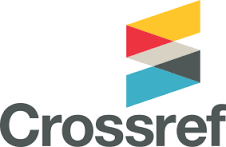PROSES PENYUSUNAN DOKUMEN PERENCANAAN DAN LAPORAN PERTANGGUNGJAWABAN PEMERINTAH DAERAH DI INDONESIA: PENDEKATAN KUALITATIF
Abstract
This study aims to provide an overview of the process of preparing and analyzing factors that become obstacles in the process of preparation of planning documents and accountability reports of local governments in Indonesia. The type of research to be used is qualitative research. The type of data in this study is based on primary data. Technique data collection used is interview. Interviews were conducted in depth with semi-structured questions. Selection of participants with expert analysis techniques. The data analysis technique is using coding which consists of open coding, axial coding and selective coding. The result of the research shows that the process of preparation of planning documents and accountability reports to the local government is still experiencing constraints in the stages of resource identification, evaluation is limited to the implementation, not showing results-oriented activities, and preparing accountability report due to obligations. The inhibiting factors were found in the presence of coordination difficulties that occurred between the fields within the organization and the inability to identify the problem being experienced.
Keywords
Full Text:
PDF (Bahasa Indonesia)References
Akbar, R., Pilcher, R. A., & Perrin, B. (2015). Implementing performance measurement systems: Indonesian local government under pressure. Qualitative Research in Accounting & Management. https://doi.org/10.1108/QRAM-03-2013-0013
Baralt, M. (2012). Coding Qualitative Data. In Research Methods in Second Language Acquisition: A Practical Guide (pp. 222–244). https://doi.org/10.1002/9781444347340.ch12
Benaquisto, L. (2008). Codes and coding. The SAGE Encyclopedia of Qualitative Research Methods Methodology, 517–522. https://doi.org/10.4135/9781412963909
Benson, T. (2011). Cross-Sectoral Coordination in the Public Sector: A Challenge to Leveraging Agriculture for Improving Nutrition and Health. In Leveraging Agriculture for Improving Nutrition and Health (p. 4). Washington DC: International Food Policy Research Institute. Retrieved from http://www.ifpri.org/publication/cross-sectoral-coordination-public-sector
Birt, L., Scott, S., Cavers, D., Campbell, C., & Walter, F. (2016). Member checking. Qualitative Health Research, 26(13), 1802–1811. https://doi.org/10.1177/1049732316654870
Braun, V., & Clarke, V. (2016). Thematic analysis. Journal of Positive Psychology. https://doi.org/10.1037/13620-004
Bryman, A. Triangulation, Encyclopedia of Social Science Research Methods § (2011). https://doi.org/http://dx.doi.org/10.4135/9781412950589
Bryson, J. M., Crosby, B. C., & Bloomberg, L. (2014). Public value governance: Moving beyond traditional public administration and the new public management. Public Administration Review, 74(4), 445–456. https://doi.org/10.1111/puar.12238
Cairney, P. (2013). Understanding public policy : theories and issues. Public Administration, 91(3), 782–793. https://doi.org/JK468 P64 D95 2013, ait
Elmer, P. J., & Borowski, D. M. (2011). Expert Analysis : System of S & L Bankruptcy. An Expert System Approach to Financial Analyst.
Fauziah, D. Z. (2014). Evaluasi Penyusunan Indikator Kinerja Berbasis Logic Model (Studi Pada Pemerintah Kota Tangerang). Universitas Gadjah Mada. Retrieved from http://etd.repository.ugm.ac.id/index.php?mod=penelitian_detail⊂=PenelitianDetail&act=view&typ=html&buku_id=67888&obyek_id=4
Febriantoko, J. (2013). Analisis Efektifitas Belanja Modal Dinas Pekerjaan Umum, Dinas Kesehatan, dan Dinas Pertanian Kabupaten Wonogiri Periode 2012 Sampai 2011. Digital Library Universitas Islam Indonesia. Universitas Islam Indonesia. Retrieved from https://simpus.uii.ac.id/search/?n=009042&l=100&b=I&j=SK
Guba, E., & Lincoln, Y. (1994). Competing Paradigms in Qualitative Research. Handbook of Qualitative Research, 105–117. https://doi.org/http://www.uncg.edu/hdf/facultystaff/Tudge/Guba%20&%20Lincoln%201994.pdf
Hagens, V., Dobrow, M. J., & Chafe, R. (2009). Interviewee Transcript Review: assessing the impact on qualitative research. BMC Medical Research Methodology, 9(1), 47. https://doi.org/10.1186/1471-2288-9-47
Holton, J. (2010). The coding process and its challenges. The Grounded Theory Review, 9(1), 21–40. https://doi.org/I: http://dx.doi.org/10.4135/9781848607941.n13
Iyoha, F. O., & Oyerinde, D. (2010). Accounting infrastructure and accountability in the management of public expenditure in developing countries: A focus on Nigeria. Critical Perspectives on Accounting, 21(5), 361–373. https://doi.org/10.1016/j.cpa.2009.06.002
Jaenudin, & Chairunisa, F. (2015). Faktor Faktor yang Mempengaruhi Kinerja Pegawai Negeri Sipil Pada Sekretariat Daerah Kabupaten Bulungan. Jurnal Administrasi Negara, 21(2), 50–61.
Joumard, I., Lonti, Z., & Curristine, T. (2007). Improving Public Sector Efficiency. OECD Journal on Budgeting, 7(1), 1–41. https://doi.org/10.1787/budget-v7-art6-en
Kalra, S., Pathak, V., & Jena, B. (2013). Qualitative research. Perspectives in Clinical Research, 4(3), 192. https://doi.org/10.4103/2229-3485.115389
Kusumaningrum, I. (2009). Pengaruh Kejelasan Sasaran Anggaran, Pengendalian Akuntansi dan Sistem Pelaporan Terhadap Akuntabilitas Kinerja Instansi Pemerintah Provinsi Jawa Tengah. Universitas Diponegoro. Retrieved from http://eprints.undip.ac.id/7832/
MacQueen, K. M., McLellan, E., Kay, K., & Milstein, B. (1998). Codebook Development for Team-Based Qualitative Analysis. Cultural Anthropology Methods, 10(2), (s): 31-36. https://doi.org/https://doi.org/10.1177/1525822X980100020301
Mahmudi. (2011). Akuntansi Sektor Publik. Yogyakarta: UII Press.
Mardiasmo. (2002). Elaborasi Reformasi Akuntansi Sektor Publik: Telaah Kritis Terhadap Upaya Aktualisasi Kebutuhan Sistem Akuntansi Keuangan Pemerintah Daerah. Journal Akuntansi & Auditing Indonesia, 6(1), 63–82.
Marvin, H. (2012). Evaluasi Penyusunan Indikator Kinerja Pada Pemerintah Kabupaten Bantul. Universitas Gadjah Mada. Retrieved from http://etd.repository.ugm.ac.id/index.php?mod=penelitian_detail⊂=PenelitianDetail&act=view&typ=html&buku_id=57324&obyek_id=4
Micheli, P., & Mari, L. (2014). The theory and practice of performance measurement. Management Accounting Research, 25(2), 147–156. https://doi.org/10.1016/j.mar.2013.07.005
Price, J. M. C. (2010). Coding: Selective Coding. In Encyclopedia of Case Study Research (p. 158). https://doi.org/10.4135/9781412957397.n56
Rizal, Y. (2015). Implementasi Prinsip Akuntabilitas Publik dan Kaitannya Dengan Reformasi Birokrasi di Sumatera Barat. JAKPP : Jurnal Analisis Kebijakan & Pelayanan Publik. Retrieved from http://journal.unhas.ac.id/index.php/jakpp/article/view/46
Saldana, J. (2009). The Coding Manual for Qualitative Researchers. The Coding Manual for Qualitative Researchers. https://doi.org/10.1109/TEST.2002.1041893
Satori, D., & Komariah, A. (2009). Metodologi Penelitian Kualitatif. Bandung: CV. Alfabeta.
Schillemans, T. (2008). Accountability in the shadow of hierarchy: The horizontal accountability of agencies. Public Organization Review, 8(2), 175–194. https://doi.org/10.1007/s11115-008-0053-8
Sekaran, U., & Bougie, R. (2013). Research methods for business. In Research methods for business (p. 436). https://doi.org/10.1017/CBO9781107415324.004
Supartini, N. (2012). Evaluasi Implementasi Sistem Akuntabilitas Kinerja Instansi Pemerintah (SAKIP) (Studi Kasus pada Pemerintah Kabupaten Kotawaringin Barat). Universitas Gadjah Mada. Retrieved from http://etd.ugm.ac.id/index.php?mod=penelitian_detail⊂=PenelitianDetail&act=view&typ=html&buku_id=55507
Waworuntu, T. S. S. (2013). Evaluasi Penyusunan Anggaran Sebagai Alat Pengendalian Manajemen BLU RSU Prof.Dr.R.D Kandou Manado. Jurnal EMBA, Vol 1 No 3, 904–913.
Windasari, I. P., & Surendro, K. (2011). Pengukuran Kesenjangan Digital di Institusi Pemerintah Daerah ( Studi Kasus : Pemerintah Kota Semarang ). Jurnal Sistem Komputer, 1(2), 71–76.
DOI: https://doi.org/10.21107/mediatrend.v12i2.3067
Copyright (c) 2017 Media Trend


















